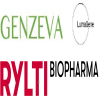Dive Brief:
- Among the handful of major biotech hubs in the U.S., Massachusetts — and more precisely, the Boston metropolitan area — has shown immense growth over the last few years. And a recent report further strengthens those claims.
- Data collected by the Massachusetts Biotechnology Council, or MassBio, showed the state's biopharmas received $2.9 billion of venture funding last year, a 26% increase from 2015. Massachusetts also ranked first in terms of biotech R&D employment, narrowly edging out California with its 34,366-person workforce.
- "Massachusetts is the [number one] biotech cluster in the world, home to the best universities, hospitals and biopharma companies, along with the brightest minds in the industry — but we didn’t get there by chance," MassBio's CEO Robert Coughlin said in a statement. "In order to remain on top, we must continue to foster a welcoming environment for life sciences companies to grow and move here."
Dive Insight:
For years, New Jersey served as the pharmaceutical industry's bedrock, and for many companies that's still the case. Giant drugmakers like Johnson & Johnson and Merck & Co., for instance, still maintain headquarters in the respective cities of New Brunswick and Kenilworth.
Yet the industry's large revenues, focus on innovation and constant need for new employees have caught the eyes of other states and cities looking to boost their local economies. Places like San Francisco and Boston have become hot springs for biotechs looking to be close to major research hospitals and academic institutions.
Late last year, New York City Mayor Bill de Blasio announced the LifeSci NYC initiative, which will pump $500 million into creating roughly 16,000 new jobs in the life sciences.
"The life sciences industry is not only producing new discoveries that improve people’s lives, but it also has the potential to play a major role in the future of our five-borough economy," Maria Torres-Springer, the then-president of NYC's Economic Development Corporation, said in a December statement.

Massachusetts Governor Charlie Baker unveiled a similar plan for his state this summer, one that would use $500 million over the next five years for infrastructure, R&D and workforce training in the life sciences.
"Governor Baker’s recent announcement of a 5-year, $500 million life sciences '2.0' initiative is evidence that the state remains committed to the industry. As long as government, industry and academia continue to work together, we will maintain our stature," MassBio's Coughlin said.
Massachusetts already holds a leadership position in the life sciences. The state has seen 40% growth in its biotech R&D workforce since 2007 and 9% last year alone. Both big pharma and smaller biotechs are contributing to that job creation, too. Ironwood Pharmaceuticals Inc. and Alnylam Pharmaceuticals Inc. each employ several hundred in the state, while Sanofi SA has a workforce of 5,000.

Manufacturing jobs, however, have been slower to grow. Massachusetts ranked 10th among all states for number of pharmaceutical manufacturing positions in 2016, according to MassBio. Though the state has seen those jobs increase more than 12% over the last decade, biomanufacturing roles in the entire U.S. decreased 6.5% during that period.
Meanwhile, monetary investments have been substantial. The National Institutes of Health awarded nearly $2.6 billion in funding to Massachusetts last year, putting it second behind California.
Venture capital has also steadily increased, totaling $7 billion for the state's biopharma companies over the last three years. In 2016, Moderna Therapeutics Inc. and Intarcia Therapeutics Inc. together fetched more than $850 million in venture funding.















